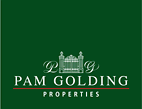Ciders boost Distell
2007-02-22
RESPONSIBLE pricing and marketing, as well as improved efficiencies, have enabled Distell to meet the demands of a tough market, comfortably growing revenue ahead of higher volumes, according to MD Jan Scannell.
For the six months to December 31, the company succeeded in lifting revenue 16,6% to R4,3bn on a sales volume increase of 11,0%.
Domestically, sales volumes rose 11,9% (compared to 4,8% in the previous year). Spirit sales volumes increased 3,7% with premium products showing sound growth.
Cider brand leaders Hunter’s and Savanna (produced in Paarl) played a key role in boosting the sales volumes of ready to drink products, that grew an impressive 25,5% on the same reporting period last year (2005: 11,7%).
At the same time, wine sales volumes grew 4,6% (2005: 0,9%), which Scannell described as a remarkable achievement in an industry hampered by a global oversupply, and with many local wine producers struggling to survive.
“Those who have yielded to discounting pressures are, in many instances, floundering. However, producers who have been able to adopt a longer-term strategy in preserving the integrity of their trademarks are holding out better.”
He said international sales volumes, excluding Africa, increased 3,3%, with Amarula, in particular delivering an exceptional performance, advancing volumes 33,4%.
Although natural wines showed a sales volume decline of 3,7%, mainly as a result of the oversupply affecting some European markets, promising gains were made in North America and Asia Pacific. Consequently, total international revenue rose 27,5%.
He stressed that Distell’s wine export volumes, specifically bottled wine exports, were still trending well ahead of the South African category abroad.
“Our focus is exclusively on bottled wines, whereas the local industry has been moving increasingly into bulk exports as a way of curtailing supply chain costs.”
“What is pleasing is that on a global basis, profits from wine showed solid growth in spite of difficult market circumstances.”
Scannell said this was the result of responsible, consumer-focused brand building conducted over many years in an environment where most producers had elected to focus on price to achieve volume. He stressed that grape wine growers who were long-term supply partners of Distell, had also benefited from the company’s brand protection strategy.
"We anticipate that the global oversupply in wine will continue to be felt in the market for some time, consequently pricing pressure will continue in major markets."
A dividend of 87 cents per share has been declared, an increase of 27,9% on the previous year’s interim payment of 68 cents per share.
Continued growth in revenue and in adjusted headline earnings was expected for the full year, he said.
More
News
|


